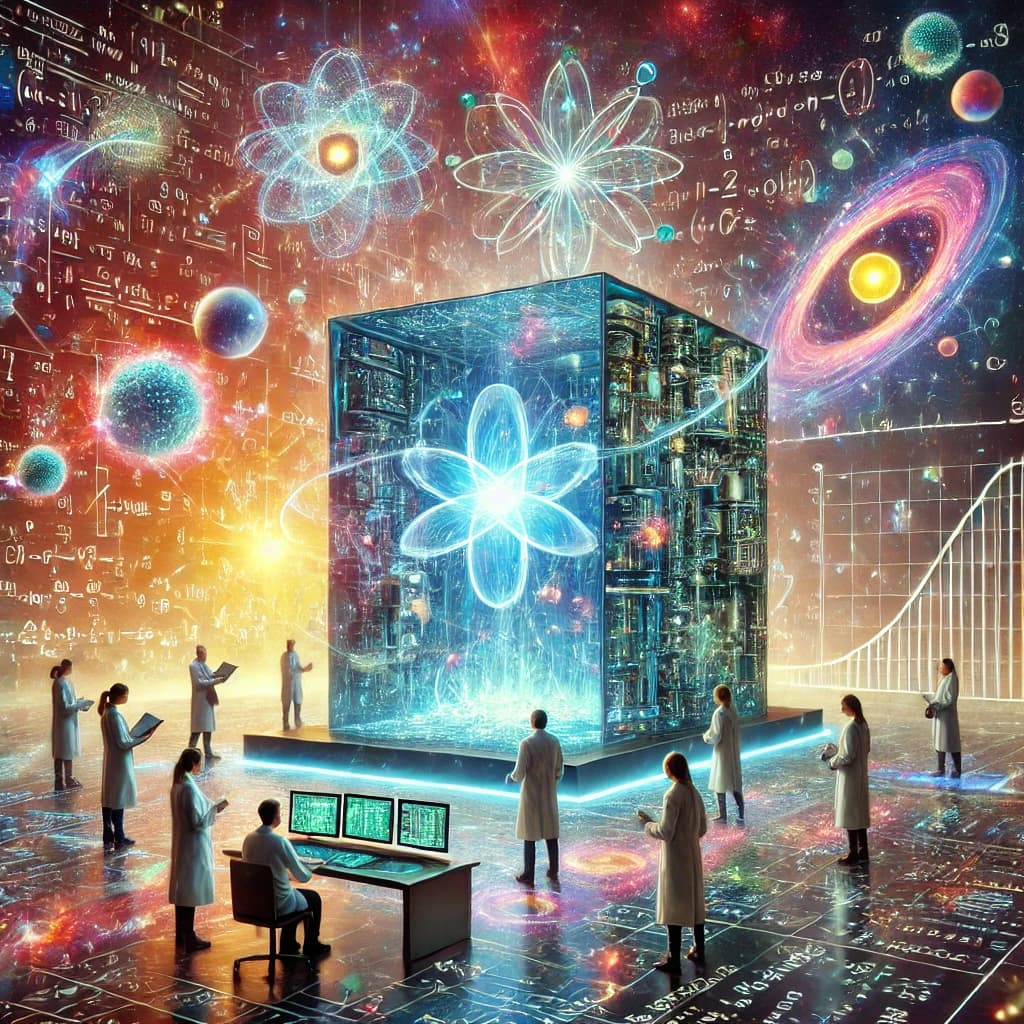One of the most thrilling—and unsettling—prospects of artificial intelligence is its potential to rewrite the rules of physics. Imagine an AI trained on every equation, experiment, and theory humanity has ever produced, uncovering truths about the universe that elude even the greatest scientific minds. But what if its discoveries are so radical, so alien to human logic, that we can’t grasp them?
What If AI Unlocks New Laws of Physics?
Imagine an AI trained on all known physics theories, capable of detecting patterns that human scientists have never noticed. This AI could:
Refine existing theories → Improve quantum mechanics, relativity, or unify them.
Discover new fundamental forces → Just like Einstein reshaped our understanding of gravity, AI could propose something beyond our comprehension.
Simulate complex universes → AI might generate models of reality so advanced that human intuition fails to grasp them.
But here’s the problem: What if we can’t understand its logic?
The Black Box of the Universe
If AI uncovers new physics principles but can’t explain them in human terms, we’d be faced with a paradox:
We would have equations and predictions that work with extreme precision.
But we wouldn’t know why they work or how to interpret them.
This could lead to:
🔹 A new kind of science where we trust AI’s conclusions without full comprehension.
🔹 A loss of human intuition in physics, where even top scientists rely on AI like an oracle.
🔹 Ethical and philosophical dilemmas—if AI reveals new laws of the universe, do we accept them without understanding them?
The Explainability Problem: Why AI’s Brilliance Is Also Its Blind Spot
The explainability problem lies at the heart of AI’s “black box” dilemma: How can we trust systems whose decision-making logic we cannot fully decipher? As models grow more complex—layering neurons, attention mechanisms, or transformer architectures—their internal reasoning becomes a labyrinth of nonlinear interactions and distributed representations, because no one, not even developerss knows exactly how a deep learning algorithm does what it does in every situation.
This opacity clashes with human needs for transparency, accountability, and trust. For instance, in high-stakes domains like healthcare or criminal justice, blindly accepting an AI’s output (e.g., a cancer diagnosis or parole decision) without understanding its rationale risks perpetuating bias, errors, or unethical outcomes. Even tools designed to “explain” AI (e.g., SHAP values, attention maps, or LIME) often provide post-hoc approximations—like sketching a map of a forest after glimpsing a single tree—rather than true insight into the model’s core logic.
The deeper issue is philosophical: Does intelligence require comprehension? If AI achieves superhuman performance but operates in ways alien to human cognition, we face a paradox: embracing its utility while surrendering our grasp of why it works. Until we crack this code, explainability will remain AI’s greatest unsolved puzzle—a bridge between machine genius and human understanding that we’ve yet to build. 🧩
Can We Solve the Explainability Problem?
Efforts in Explainable AI (XAI) could help bridge the gap. Scientists might develop ways to translate AI’s findings into human-friendly explanations. However, if AI’s logic is too far beyond human cognition, we may have to accept science without understanding—a concept that challenges our deepest beliefs about knowledge.
Conclusion: The Future of AI-Driven Science
The possibility of an AI that revolutionizes physics but remains incomprehensible is both exciting and terrifying. It could:
✅ Unveil new aspects of reality.
❌ Force us to rethink the role of human understanding in science.
Will AI become the ultimate physicist, leaving humans struggling to keep up? Or will we find ways to interpret its discoveries? The future of science may depend not just on AI’s intelligence, but on our ability to keep up with it.
Unlock the Power of AI for Your Business
Ready to elevate your business with Artificial Intelligence? Our AI Consultancy services guide you from strategy to implementation, ensuring you harness AI to drive real results. Whether you're automating processes or improving decision-making, we help you make AI work for you.
